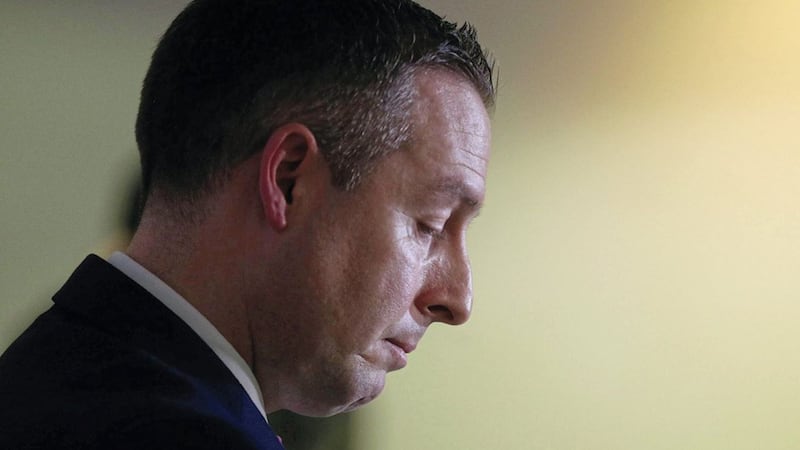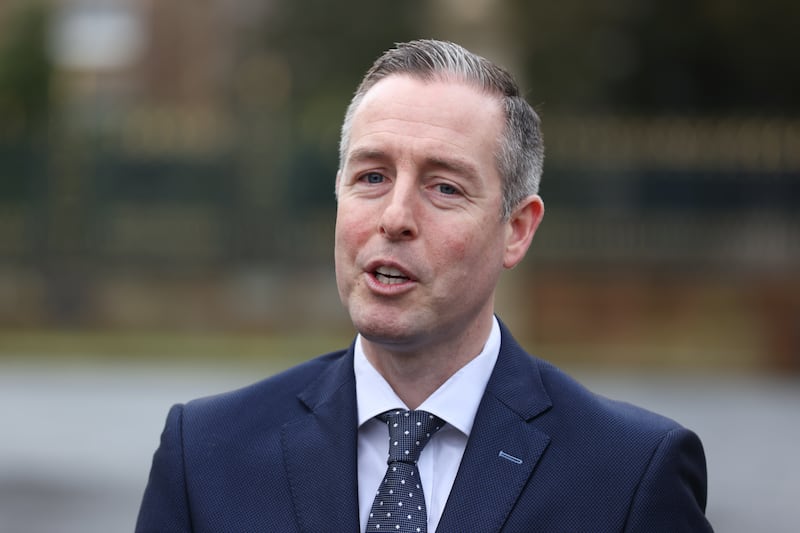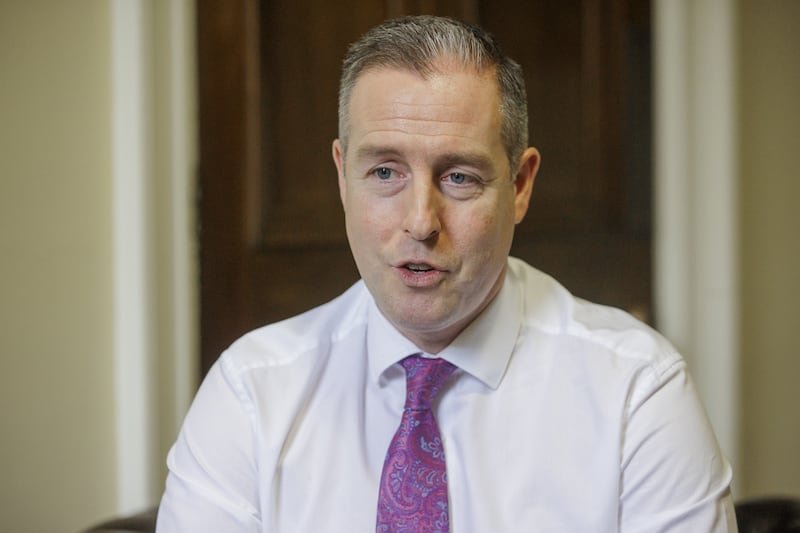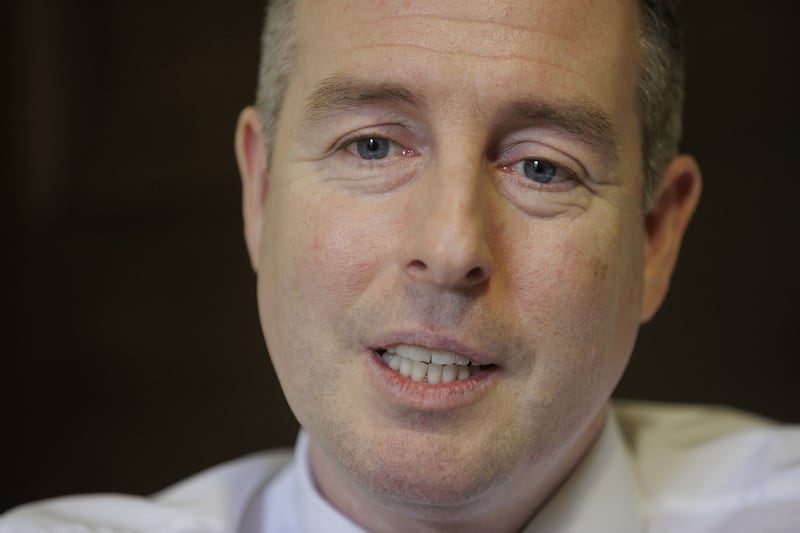“We’re better than this, we must seek to improve our standards and rise above where we are today.”
Conservative MP Tobias Ellwood’s appeal for his party to drag themselves out of a sleaze quagmire and dump Boris Johnson as leader has so far had little impact.
I'm not entirely convinced his party has any wish to raise its standards, but at least he’s trying.
Paul Givan’s resignation as first minister last week was so cynical that even he didn’t bother to spin it as being for the greater good.
Instead he claimed that the Brexit agreement was testing the "delicate balance" created by the Good Friday and St Andrews agreements.
The DUP threatened to take down the executive six months ago. Since then, very little has changed.
Sir Jeffrey Donaldson said in September that he would pull his ministers before November if the party’s demands on the protocol were not met.
That deadline came and went, marked only by a few anti-protocol rallies and some localised violence.
Protocol negotiations have rumbled on but checks on goods are still continuing, despite agriculture minister Edwin Poots's best efforts to stop them last week.
Who would have thought that veteran DUP MLA Jim Wells, frequently an outsider in his own party, was actually the one holding everything together?
His de-selection in South Down seems to have inadvertently triggered an internal DUP meltdown worse that the coup against Arlene Foster.
But the point of electing leaders is that they must lead, not collapse a fragile government because their own party is imploding.
It's a serious dereliction of duty to pull down the executive during a severe economic crisis and just a few months before a planned election.
Granted, there is clear anger in some sections of unionism over the protocol.
But is it really the main issue facing voters? People from Bangor to Belcoo are facing some of the most devastating economic changes in living memory.
Thousands of people are living in poverty. Thousands are on social housing lists.
Inflation is at a 30-year-high.
The price of food, including staples like potatoes and rice, is rising at a rate not seen in the last three decades.
Barely a week has gone by without announcements of further rises in gas and oil prices.
Most households now face gas bills of at least £100 a month.
People on low incomes are facing a double-punch of cuts to benefits and sharply rising prices.
It doesn't take much to push a family into debt. As Mr Micawber told David Copperfield: "Annual income twenty pounds, annual expenditure nineteen nineteen and six, result happiness. Annual income twenty pounds, annual expenditure twenty pounds ought and six, result misery."
The Christians Against Poverty (CAP) charity has said its clients in Northern Ireland have higher debts than their counterparts in Britain. And three-quarters of those debts are owed on credit cards or through unsecured loans and overdrafts.
Then there are the long-term issues which Stormont has never properly addressed.
The health impact of the Troubles, particularly the legacy of poor mental health, remains a serious challenge.
Abortion provision is still a mess, even though the procedure was decriminalised in 2019.
Our healthcare system needs a serious overhaul, and has done for well over a decade.
Attempts to address the climate crisis - the single biggest threat facing humanity - have proved farcical.
And all this as we emerge from a pandemic not seen in over a century.
What voters are really worried about is social care, the state of our hospitals and schools and whether they can actually make ends meet at the end of the month.
Charitable trust Carnegie UK has already said that the level of public trust in government institutions in the north is lower than in Britain.
If we have no trust in the people who lead us, then we have no trust in their decisions and no confidence that they are acting for our good.
Carnegie held an online conference last week entitled 'What kind of Northern Ireland do we want?'
The answer for most of us is 'a better one than what we have'.
We actually are better than this. It's just that the DUP hasn't caught up.








